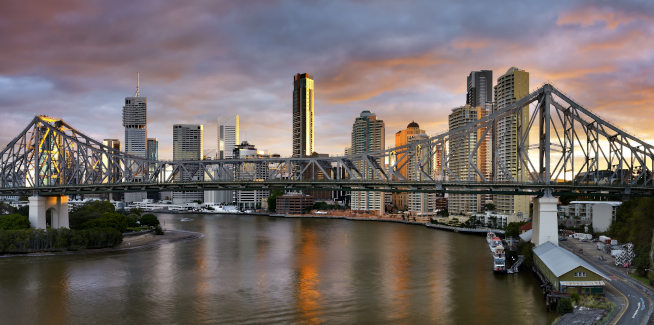Knight Frank’s Global Residential Cities Index for Q1 2022, which tracks the movement in mainstream residential prices across 150 cities worldwide, has revealed that the nation’s capitals have seen some of the highest 12-month home price gains in the world.
At the end of the latest quarter, Brisbane was the only capital city to make it to the top 10, recording 12-month price growth of 28.4 per cent.
Another Australian locale to make an appearance in the top 20 was Hobart, with residential properties in the city recording an annual increase of 26.0 per cent.
Adelaide was not far behind the Tasmanian capital, as the South Australian capital’s 25.1 per cent annual growth rate secured the city the 14th spot on the list.
Canberra made an appearance in the top 30 of the comprehensive list, placing 26th with a year-on-year increase of 18.4 per cent.
Sydney sat further back in the 150-city list, ranking 31st with 16.1 per cent annual growth. But the NSW capital managed to outrank Melbourne and Perth, which ranked at 66th and 121st place, respectively. The Victorian capital reported a rate growth of 9.2 per cent, while the Western Australian capital notched a meagre 3.5 per cent annual gain.
Overall, Australian cities saw an average gain of 18.3 per cent year-on-year.
Head of residential research at Knight Frank Australia Michelle Ciesielski weighed in on the figures, commenting that the performance of the country’s residential prices has been heavily influenced by smaller cities and regional areas, which have continued to record solid price growth into 2022.
“[This is] due to the relocation of families and digital nomads to more affordable locations, investors returning to the market seeking a better rental yield and others buying holiday homes for their retirement plans in the coming years,” she explained.
Commenting on the top three performing cities during the period, Ms Ciesielski stated: “[Brisbane], Hobart and Adelaide, still have a $200,000 financial buffer between the median value of their city and Australia attracting first home buyers and investors from across the country.”
The expert also highlighted that the top-ranking cities attracted an elevated population growth against the Australian average in 2021. Ms Ciesielski noted that this surge in the number of rental space seekers had a profound impact, particularly on the rental market.
“As result, total vacancy ranged well below the 2.8 per cent Australian average, from 0.5 per cent and 0.9 per cent, as the rise in weekly rents outstripped the Australian average of 8 per cent recording a rental growth range of 8.5 per cent to 12.8 per cent at the end of Q1 2022,” Ms Ciesielski said.
[Related: Housing affordability continues downward spiral: REIA]
 ;
;